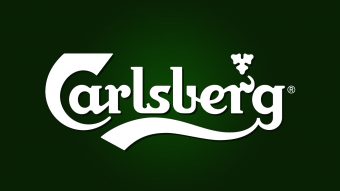 Plant for the waste water treatment in the Carlsberg beer factory in Čelarevo opened in 2010 in the presence of the top state officials. This brewery is among the first in Serbia which presented this kind of facility. They wanted to emphasize that they care about the broader community and the environment.
Plant for the waste water treatment in the Carlsberg beer factory in Čelarevo opened in 2010 in the presence of the top state officials. This brewery is among the first in Serbia which presented this kind of facility. They wanted to emphasize that they care about the broader community and the environment.
The total investment amounts to around 5 million euros and there is a plan for other innovations such as the use of treated water for the watering of green areas, which our interviewee has announced. There is ambition for more efficient use of resources, especially water, since in 2015 3.6 hl of water was used for the production of 1 hl of beer. There is a plan to spend 3.5 hl of water in 2016 for the production of the appreciated drink. We met Marko Mares after the presentation on which he presented Carlsberg as a responsible and active company. He gave us some more details on waste water treatment exclusively for our portal.
EP: At the fair dedicated to water management in the organization of RENEXPO, which lasted from 6th to 8th June 2016., you presented Carlsberg as a responsible and modern company that takes care about the waste water treatment and at the same time about the broader community. Tell us briefly what makes Carlsberg an exemplary when it comes to waste water?
Marko Mares: Since the Carlsberg has CSR (Carlsberg Social Responsibility) plan on environmental protection and self-preservation of the local community on a global level, our concern and responsibility about the environmental impact is related to many fields, and not only to the treatment of waste water, but waste water is the biggest and the most significant project in Carlsberg Serbia. When it comes to the plant itself, it is a very modern automated department for tertiary treatment of waste water, which means that the incoming waste water is purified, mechanically – by removing physical impurities, microbiologically – in methane and aerobic tanks and with sedimentation – with the reaction of chemical agents that bind chemical impurities such as phosphorus.
This method of purification has an outstanding result for the efficiency of the department and up to 99% in comparison to the incoming pollutants, for which we obtain confirmation from the Institute for Public Health in Novi Sad by water analysis. The results of the analysis are in accordance with the stipulated standards for discharged water and present ecologically safe water for discharge into natural recipients.
EP: What else does Carlsberg implement in its business policies and ethics which is related to recycling and solid waste? What are your performance data in these areas?
Marko Mares: Brewery Čelarevo holds ISO 14001 standard for Management Systems of Environmental Protection, whose part is waste management.
The Brewery collects all hazardous waste, which includes waste oils, electrical and electronic waste, fluorescent tubes, hazardous waste packaging as well as waste which is non-hazardous and that is: cardboard, plastic, glass, metal, wood, by-products of primary production.
The transportation of the collected waste is carried out in accordance to the Law on Waste Management by external operators who have permits for transportation, disposal and waste treatment.
The company Carlsberg Serbia has annual national targets for the amount of recycled packaging which are successfully implemented together with the company Sekopak that is engaged in waste management.
EP: Does Carlsberg Serbia have some specifics in the process of treating waste water and what are they?
Marko Mares: As mentioned before, the station for waste water treatment in Čelarevo is specific precisely because it covers all the aspects of pollution and the water is released form polluters. By doing so, in a methane reactor (microbiological treatment) we get biogas in the form of methane as a product of metabolism of microorganisms which process wastewater. Carlsberg Serbia uses this gas as a replacement fuel for natural gas which we normally use in the quantity up to 18%. This method of biogas utilization generates the savings of around 140,000 euros annually.
EP: Can you tell us something about your new plans and will you improve and modernize the existing procedure?
Marko Mares: Current activities are related to the manufacturing processes in order to reduce the percentage of waste materials and then the preparation of waste materials for easier removal and treatment, which would reduce the load on the station for waste water treatment. This will be regulated by a combination of production processes’ optimization, as well as the inclusion of various technologies such as decanters for the treatment of tropes which would reduce the waste amount of solid matter.
Regarding the further plans for the factory for the waste water treatment there is an idea to further use the treated water for watering green areas, but that project is still in the initial stage.
Interview by: Vesna Vukajlovic

